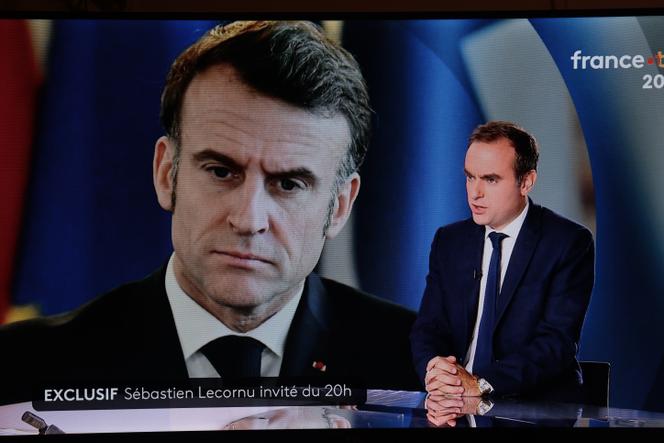
Published October 9, 2025
A Crisis of Governance: Macron’s Sisyphean Search for Stability
On October 6, 2025, France entered yet another episode of political turbulence. Sébastien Lecornu, having just unveiled his cabinet, abruptly resigned within hours — marking the shortest premiership in modern French history. The shock move sends President Emmanuel Macron back into the trenches, once again trying to stitch together a functioning government in a fractured legislature.
The Collapse of Lecornu’s Government
Lecornu’s fall stemmed from internal discontent across the political spectrum. His proposed cabinet provoked backlash from both allies and opponents, particularly over key portfolios and ideological continuity with previous governments. Rumblings over the appointment of Bruno Le Maire as defense minister and the “recycling” of familiar faces reignited accusations of policy stasis rather than renewal.
In his farewell to the public, Lecornu claimed that enough deputies opposed dissolving the National Assembly and that a parliamentary majority could still be found to pass the 2026 budget. Macron then retained Lecornu in a caretaker capacity, charging him with negotiating a “platform for stability.”
Macron’s Narrow Roadmap: Name a New PM — or Risk Dissolution
With Lecornu’s exit, the Élysée announced Macron would appoint a new prime minister within 48 hours. The president’s aides emphasized that a majority of deputies opposed dissolving parliament, and that a path remained — however fraught — to adopting the 2026 budget.
Still, Macron’s options are tightly constrained. His centrist coalition lost its parliamentary majority after the 2024 snap elections, leaving him reliant on fragile alliances across left, center, and right.Some observers speculate Macron might appoint a technocratic figure, someone without visible presidential ambitions, as a unifying placeholder.
Still, the risk of failure looms large. If the next prime minister similarly fails to build consensus, calls for dissolution of the National Assembly or even a snap presidential election could resurface. Marine Le Pen’s far-right National Rally is already watching closely, anticipating that continued deadlock might present its opportunity.
Why France’s Political System is Straining
This isn’t Macron’s first scramble to find a reliable government. Since losing his majority in 2024, France has cycled through three prime ministers in less than a year. The fragmentation of the National Assembly into three roughly equal blocs — left, far-left, and center-right — means no bloc commands a clear path to governing.
One particular fault line is Macron’s 2023 pension reform, which raised the retirement age to 64. Many left-leaning parties demand suspension or reversal of the reform as a condition for cooperation. Meanwhile, Macron’s base is wary of appointing leftist or populist figures who might undercut his policy legacy.
What to Watch in the Next 48 Hours
-
Who Macron appoints — a technocrat, a moderate centrist, or a figure from outside his camp.
-
Whether the new government can command support in votes on the budget, avoiding further collapse.
-
Signs of dissolution — if the new PM fails, Macron may again contemplate dissolving parliament.
-
Opposition maneuvers — left and right parties might press to force elections, or demand Macron’s resignation.
For now, France remains in a delicate balance. Macron’s ability to avoid institutional breakdown — and keep policy continuity alive ahead of the 2027 presidential race — depends heavily on this latest government gambit.
 Public / Political Reactions
Public / Political Reactions
Opposition Parties: Sharp Criticism, Calls for Change
-
Far-Right / National Rally (RN)
Marine Le Pen and RN lawmakers have seized on the chaos as evidence of Macron’s weakening grip. Le Pen has called for snap parliamentary elections and said she would “censure everything,” claiming the government shuffle is just stalling tactics.
RN’s Laure Lavalette called Macron’s actions “buying time,” accusing him of avoiding accountability.
The far right views instability as a political opportunity, hoping to gain momentum if elections are triggered. -
Far-Left / France Insoumise (LFI) / France Unbowed
On the left, critics argue that Macron’s repeated reshuffles reflect a deeper democratic deficit. Jean-Luc Mélenchon and allies say Macron should resign, or at least appoint a genuinely left-leaning government that reverses reforms like the 2023 pension law.
They demand the next prime minister come from the left bloc and push for more progressive policies. -
Socialists, Greens and Center-Left
These factions are watching closely. Some left-wing leaders (Socialists, Greens) have expressed willingness to govern, but only if Macron compromises—especially on pension reform, tax justice, and social measures.
But internal divisions exist: some within the left prefer remaining in opposition rather than being dragged into a fragile coalition. -
Moderates / Center / Macron Allies
Even Macron’s camp is rattled. Some former or moderate allies have urged more radical restructuring or even new elections.
The repeated government instability has raised serious questions about the viability of Macron’s centrist project.
Public Sentiment & Civil Society
-
Discontent Over Pension Reform
The 2023 pension reform (raising retirement age from 62 to 64) remains a flashpoint. Public dissatisfaction with it is frequently cited as a root cause of the instability.
Some observers suggest that unless Macron makes meaningful concessions on that reform, no government will be able to survive. -
Fatigue and Frustration
Many in the public see the revolving door of prime ministers as symptomatic of a broken system. Polling suggests declining confidence in Macron’s ability to govern coherently.
The repeated failures also feed perceptions of elite disconnection from everyday challenges (cost of living, public services, trust in institutions). -
Market & Institutional Responses
Financial markets showed some relief at signals that Macron might avoid snap elections, hoping for continuity.
But institutional observers warn that any new government will need to resolve budget deficits, debt pressures, and credibility gaps.

The outgoing prime minister, Sébastien Lecornu, speaks live on the television channel France 2, in Paris, on October 8, 2025.
 Resulting Effects
Resulting Effects
1. Erosion of Political Stability
France’s frequent government changes have deepened perceptions of instability within both domestic and international circles. With eight prime ministers under Macron’s presidency, the French political system appears increasingly fragile. Investors, European partners, and French citizens alike are questioning the country’s ability to maintain continuity in governance and long-term policy execution.
2. Weakened Executive Power
President Macron’s authority has been visibly weakened. Each failed cabinet reshuffle reduces his leverage in parliament, particularly as opposition parties on both the left and right grow bolder. Without a stable majority, Macron’s ability to pass legislation — including the 2026 budget and any new social or defense measures — remains uncertain. This could force him to rule by executive decree, a move that may further alienate lawmakers and the public.
3. Rising Influence of the Far Right
The National Rally (RN), led by Marine Le Pen, is emerging as a major political beneficiary. The far-right bloc continues to portray Macron’s government as elitist and disconnected from the people, using the crisis to frame itself as the only stable alternative. Polls suggest that RN could gain further traction if new elections are called, potentially reshaping France’s political landscape heading into the 2027 presidential race.
4. Fracturing of the Political Center
Macron’s centrist project, once hailed as the bridge between left and right, now risks collapse. Several moderate allies and ministers are distancing themselves from the president, fearing political backlash in their constituencies. This splintering may lead to a realignment of centrist and liberal forces or the emergence of new coalitions that could marginalize Macron’s Renaissance Party.
5. Public Disillusionment and Protest Risk
France’s population is showing signs of political fatigue. Citizens frustrated by repeated cabinet failures and economic stagnation — combined with anger over pension reforms and rising living costs — are increasingly distrustful of the system. Trade unions and protest movements could reignite, especially if austerity measures or unpopular reforms are pushed through by decree.
6. Policy Paralysis in Key Sectors
Government turnover has slowed progress on critical issues such as defense modernization, energy transition, and immigration reform. Ministries are operating in a caretaker capacity, delaying major decisions and contracts. This paralysis not only undermines domestic governance but also weakens France’s role within the European Union, particularly on foreign policy and military cooperation.
7. Regional and International Repercussions
Across Europe, allies are watching France’s turmoil with concern. As one of the EU’s leading powers, France’s instability may hinder collective initiatives on defense, climate policy, and support for Ukraine. Meanwhile, rival powers — particularly Russia and China — could exploit the perception of a distracted and divided France to advance their own geopolitical narratives.
 Future Outlook
Future Outlook
-
Macron’s Final Test of Leadership
The appointment of France’s eighth prime minister under President Macron will decide whether his administration can survive or finally collapse under its own instability. Another failed cabinet could push Macron to dissolve the National Assembly, forcing early elections and opening the door for a dramatic power shift. -
Rise of the National Rally
Marine Le Pen’s National Rally is poised to capitalize on public frustration. The more Macron’s government flounders, the stronger the nationalist message becomes — centered on law and order, border control, and economic sovereignty. Many voters now see the right as the only political force capable of restoring stability. -
Collapse of the Centrist Bloc
Macron’s once-dominant centrist movement is splintering. Former allies are distancing themselves, and internal divisions are widening. If the president fails to rally support around his new appointee, France could witness the disintegration of the centrist coalition that defined the Macron era. -
European and Global Implications
Continued paralysis in Paris weakens France’s influence within the European Union and NATO. Without a stable government, Macron’s ambition to lead Europe on defense, energy, and Ukraine policy will falter. European partners are already anticipating a shift toward more nationalist and protectionist leadership in France. -
Economic and Market Repercussions
Investor confidence remains fragile. Political volatility threatens fiscal planning, debt control, and budget passage. Prolonged uncertainty may force France toward austerity measures or prompt markets to downgrade its outlook — further eroding public confidence. -
A Potential Turning Point for France
The coming weeks will define the trajectory of French politics. Either Macron stabilizes his government with a unifying leader, or France’s voters will demand a return to conservative governance focused on sovereignty, national strength, and social order.
 Bottom Line:
Bottom Line:
France’s latest government collapse is more than another chapter of bureaucratic dysfunction — it’s the natural result of a centrist administration that has governed by ideology rather than accountability. President Macron’s leadership has relied on reshuffles and rhetoric instead of addressing the public’s real concerns: inflation, energy costs, migration, and national identity.
After years of reforms that favored EU alignment and globalist policy over French sovereignty, Macron now faces the consequences of ignoring the country’s working class and provincial voters. The constant turnover of prime ministers reflects not just political miscalculation but a deeper crisis of legitimacy. France’s institutions can no longer sustain endless compromise between technocrats and disconnected elites.
If Macron continues to cling to power through fragile coalitions and unelected technocrats, the real opposition — led by nationalist and conservative movements — will only grow stronger. Ordinary French citizens are demanding order, borders, and a government that protects their interests instead of appeasing Brussels.
The coming months will decide whether France restores stability through accountability and renewed national direction — or remains trapped in the same cycle of political paralysis that has defined Macron’s presidency.
SOURCES: THe GATEwAY PUNDIT – France’s Macron To Appoint His Eighth Prime Minister by Friday – Failing President Pressured To Call Snap Elections or To Resign
AL JAZEERA – France’s Macron to appoint new prime minister within 48 hours
REUTERS – France’s Macron will appoint new prime minister in next 48 hours
LE MONDE – The Elysée Palace said a successor to Sébastien Lecornu would be appointed by Friday. Talks continued throughout Wednesday on finding a budget compromise.





Be the first to comment